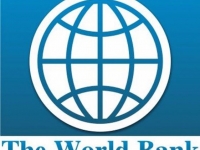News
The Paris Agreement boosts expectations for renewed carbon markets
Said James Close Director of World Bank

Nature Climate Change COP21 (Source: Rahma Sophia Rachdi)
USPA NEWS -
“The Paris agreement gives major impetus to markets and to a price on carbon, and calls for a new market mechanism to help government implement their national climate action plans effectively and with increasing ambition. Niclas Svenningsen, UNFCCC Manager, said.
“The Paris agreement gives major impetus to markets and to a price on carbon, and calls for a new market mechanism to help government implement their national climate action plans effectively and with increasing ambition. It is clear that new market approaches and mechanisms under the Paris Agreement can greatly benefit from the experience of the Kyoto Protocol´s Clean Development Mechanism (CDM), which has given rise to more than 8000 clean tech projects world-wide.“
James Close, Director, Climate Change Group, World Bank: "The Paris Agreement gives an additional boost to expectations for renewed carbon markets. Over 100 countries have indicated in their national climate action plans that they intend to, or are already using, carbon pricing to meet their climate pledges. In the Latin American and Caribbean region, two thirds of such plans include market-based carbon pricing instruments. Now is the time to accelerate action by designing and building these new instruments. The World Bank Group is committed to strengthen its support to advance well-designed carbon pricing initiatives at the domestic and international levels." John Christensen, Director, UNEP DTU Partnership:
"With the Paris Agreement moving rapidly towards ratification, the focus is increasingly on implementation of the climate action plans (“Nationally Determined contributions“, or “NDCs“) of governments submitted before Paris. The Forum shows that many countries in the region are moving quickly on the domestic policy front and looking at innovative ways of engaging the private sector. Market mechanisms and instruments are consistently mentioned as key success factors to further scaling up ambitions." Matilde Mordt, Head of Sustainable Development and Resilience, Regional Hub for Latin America & Caribbean, UNDP: “Together with all the Forum´s the co-organisers and the Panamanian Government, we have succeeded in giving it a comprehensive approach, covering not only carbon markets and private sector engagement, but also reaching out to new partners, providing a platform for discussion on opportunities and challenges for implementing the Paris Agreement and the national climate action plans, in the context of the Sustainable Development Agenda. We also coordinated the event with the Low Emission Development Strategies - LAC workshop, thus providing opportunities of scale and synergies between different initiatives. After this first ever Latin Climate Week, we see tremendous opportunities for the region. UNDP and the other partners in this endeavor stand ready to continue support countries as they move forward.“--------------------------
Amal-Lee Amin, Climate Change Division Chief, Inter-American Development Bank (IDB):
"By bringing Governments together with the private sector the Forum provided a timely opportunity to deepen the dialogue around how to align effective policy, financial instruments and carbon pricing tools for mobilization of investment needed to implement countries commitments under the Paris Agreement. At the IDBG we see the challenge now to build on this momentum to translate countries NDCs into programs for scaled up investment, particularly for sustainable infrastructure. We will also focus greater effort to boost domestic markets that unleash the innovation of LAC small and medium-sized enterprises for low carbon business models as well as those that will be needed to provide resiliency and adaptation services.“
Ligia Castro, Climate Change Director of the Banco de Desarrollo de América Latina (CAF):
"In the coming years we will continue to identify the necessary resources and projects to implement activities that boost resilient and low carbon economic development. Such Forums are essential to promoting collaboration between public and private sector, financial entities, academia and civil society as well as to develop innovative and effective initiatives to help implement the Paris Agreement."Jorge Asturias Studies and Projects Director of the Latin American Energy Organization OLADE: “The energy sector is most responsible for the emissions that drive climate change, and at the same time one of the key sectors for economic development of countries and the welfare of their populations. The Latin American and Caribbean regiion has a clean energy matrix and is one of the fastest growing markets for hydroelectric power generation, wind and solar energy.“ Source UNFCCC
Unfccc Climate Change Latin America Carribean Region Carbon Paris Agreement World Bank James Close Cop21 Cop22 Rahma Sophia Rachdi
Liability for this article lies with the author, who also holds the copyright. Editorial content from USPA may be quoted on other websites as long as the quote comprises no more than 5% of the entire text, is marked as such and the source is named (via hyperlink).







